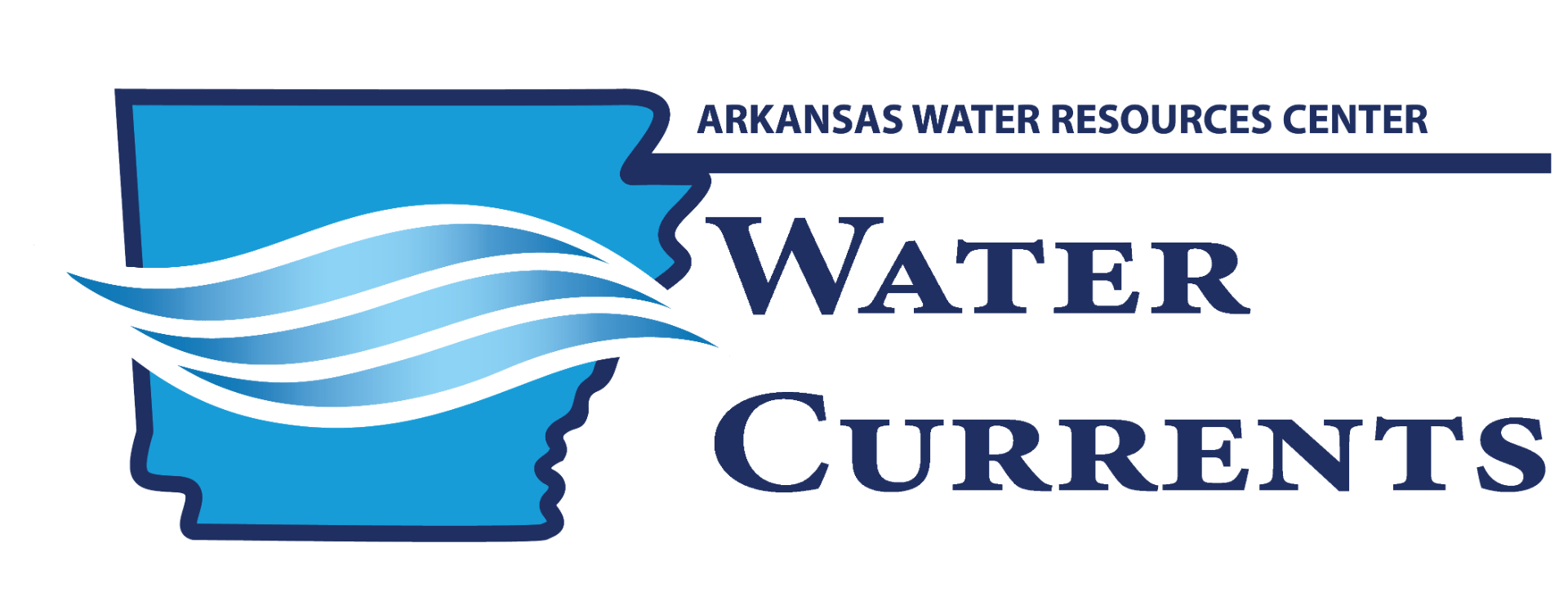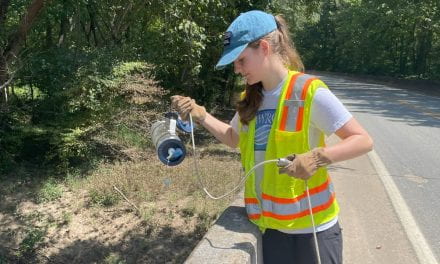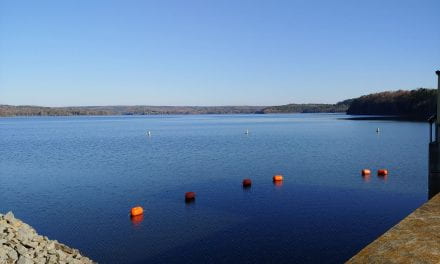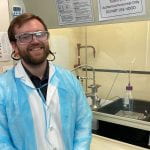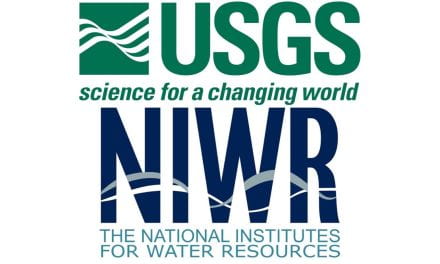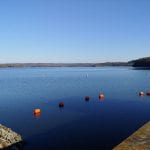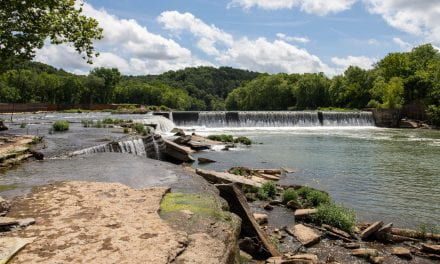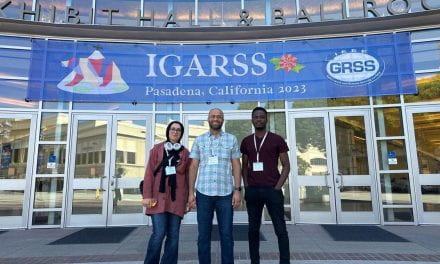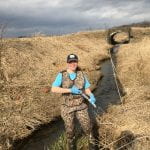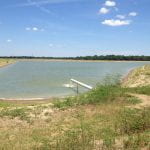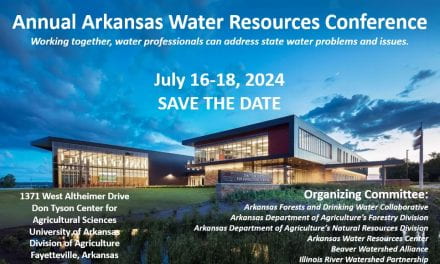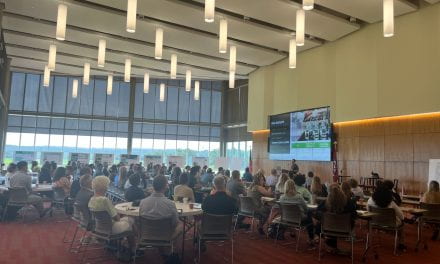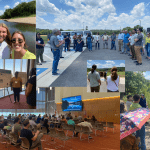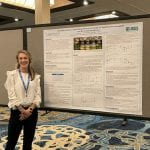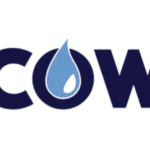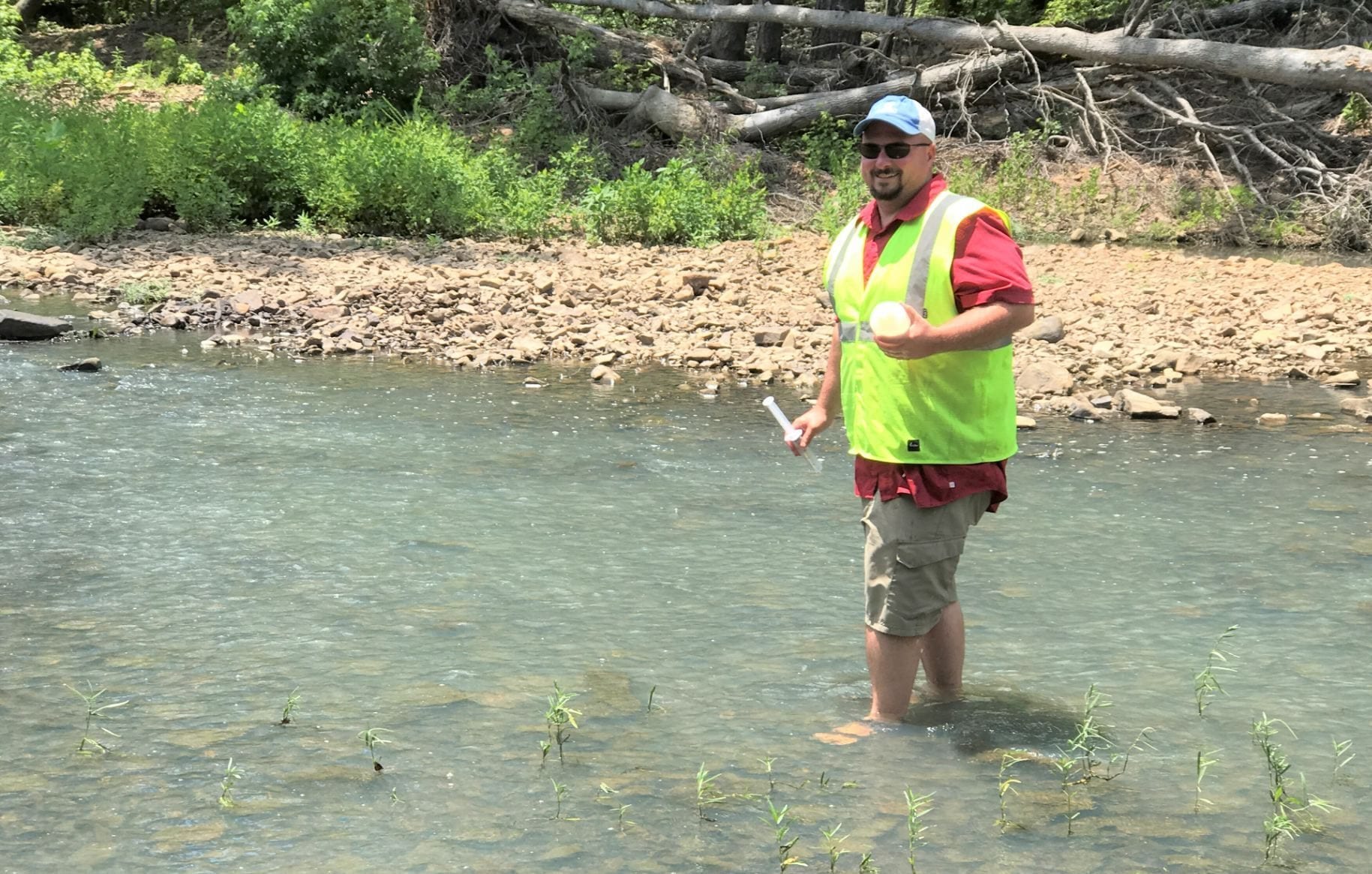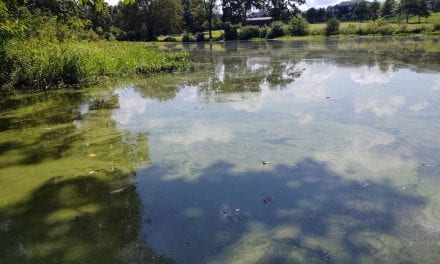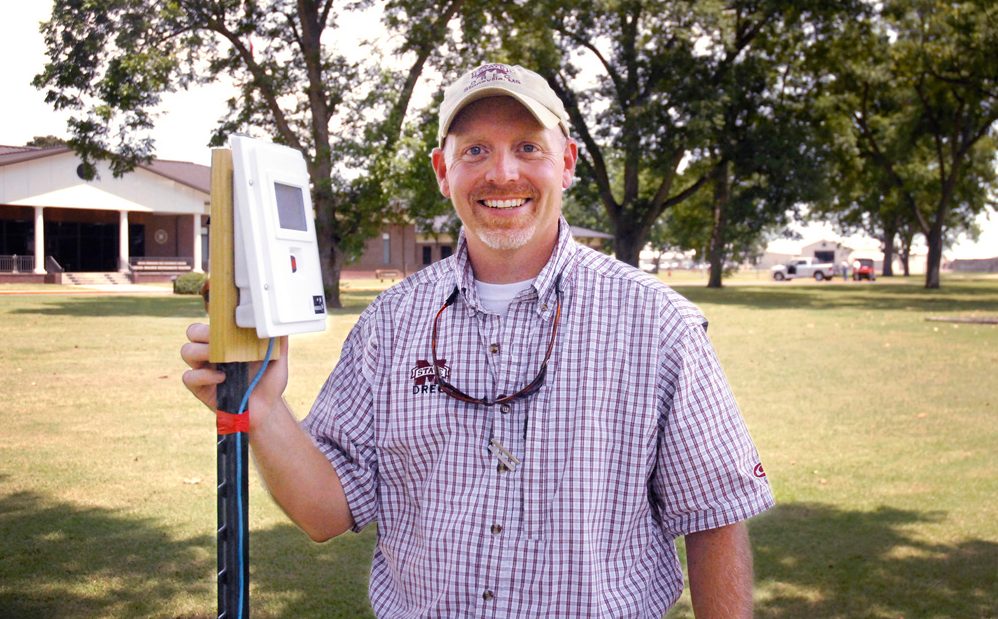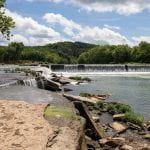
Cooperative Extension Service Busy with Outreach and Educational Programs, Incentives to Participate
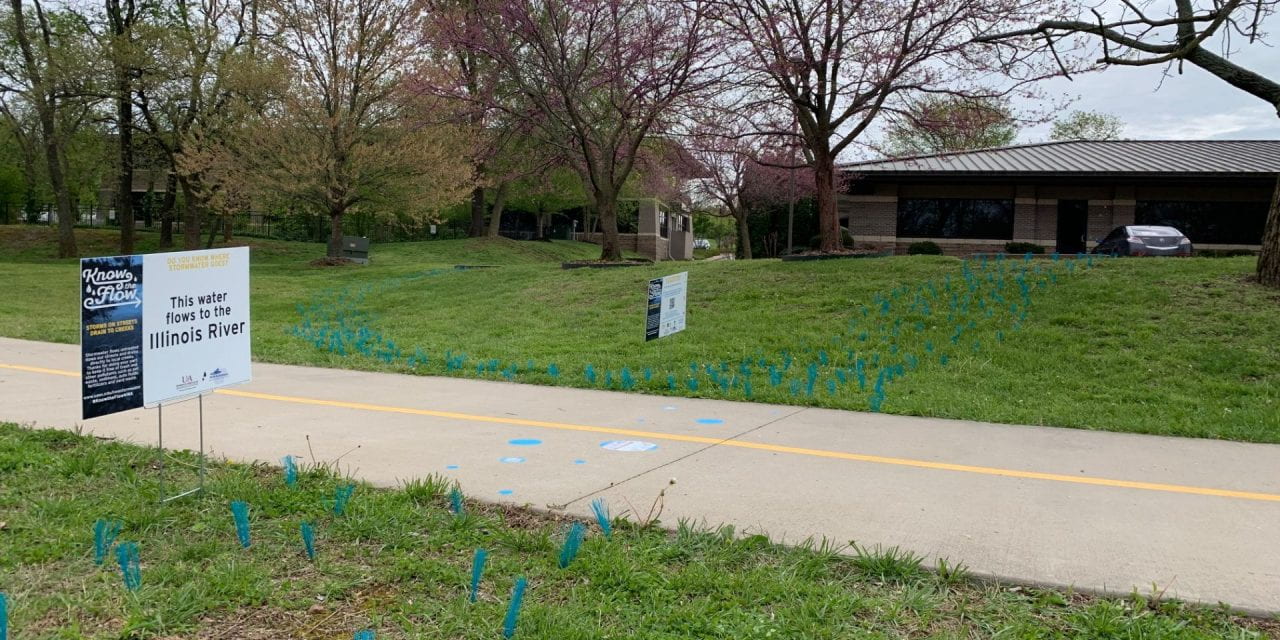
By Jane Maginot, CES
The University of Arkansas System Division of Agriculture Cooperative Extension Service is currently providing two water quality educational programs with incentives to participate.
Best Management Practice Button Program
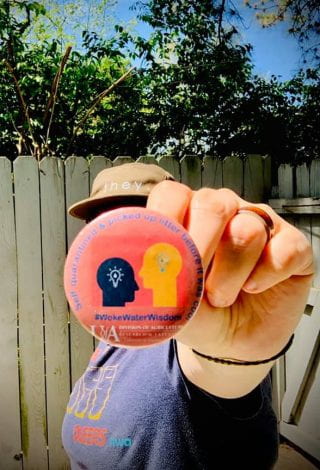
#WokeWaterWisdom button for best management practices that you can implement at and around your home.
In the first program you could receive a FREE button in the mail for implementing a non-point source (NPS) pollution prevention best management practice (BMP) in your life! BMPs for the prevention of water pollution are things you can do to protect our waterways. NPS pollution is a type of pollution that comes from many different sources so it’s difficult to know the exact origin. For example, litter is a very visible source of NPS pollution, since it’s a challenge to know who exactly dropped the trash on the ground. But you can implement a BMP by picking up that litter and throwing it away; it’s that simple!
If you implement a BMP be sure to take a video or picture and share to the event page with the hashtag #WaterIsGreaterThanGold, #knowtheflowNWA, or #WokeWaterWisdom. Let’s take these “social distancing” lemons and make some sweet “doing the right thing” lemonade by taking care of our world, even if from afar. For a list of suggested BMPs or to look at the buttons, visit our Facebook page @UAEX.WashingtonCo.Spangler.WaterQuality, Instagram @nwawokewaterwisdom, or email sspangler@uaex.edu.
Storm Drain Whisker Demonstration
Another thing to get you up and moving is a storm drain whisker demonstration that is happening on the Razorback Regional Greenway Trail system. There are two installations at Walker Park in South Fayetteville and two in Rogers, one near mile marker 26 lookout and one at Horsebarn Trailhead.
These markers follow the water’s path as it enters the storm drain infrastructure and follows it to an outfall, which is where the storm drain empties into a nearby stream without going through any type of treatment process. Many people have the misconception that storm drains lead to a waste water treatment plant, but that is incorrect in Northwest Arkansas. Any potential pollutants that may be on our city streets, parking lots, and lawns such as oils, litter, pet waste, and fertilizers flow directly to creeks and can harm water quality.
Now that you know the flow of stormwater, take a moment to fill out our survey at www.uaex.edu and you will be entered to win a FREE pair of CHACOS or five chances to win a 20.00 gift card to Pack Rat Outdoor Center. Any questions on the Know the Flow whisker project should be directed to Jane Maginot at jmaginot@uaex.edu or 479-684-9145. Both programs end on May 25th so take part now!
The University of Arkansas System Division of Agriculture offers all its Extension and Research programs and services without regard to race, color, sex, gender identity, sexual orientation, national origin, religion, age, disability, marital or veteran status, genetic information, or any other legally protected status, and is an Affirmative Action/Equal Opportunity Employer.
